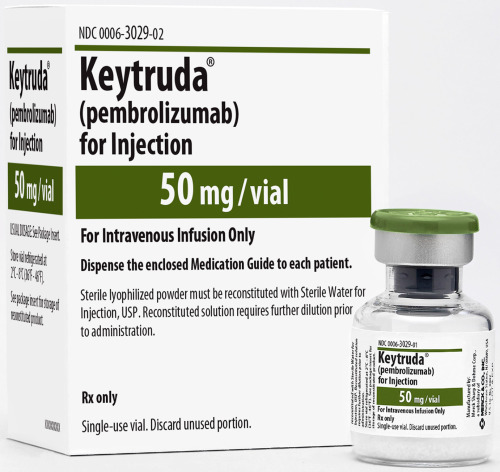NICE rejects Keytruda in lung cancer, points to price and data

NICE has ruled that MSD's Keytruda shouldn't be used for non-small cell lung cancer on the NHS, saying the company's price is too high and its data incomplete.
The first draft guidance is a major blow for patients with lung cancer hoping to receive new immunotherapy treatments, as NICE also recently issued a draft rejection of Keytruda's rival, BMS's Opdivo.
The ruling is in contrast to advanced melanoma, where NICE rapidly approved Keytruda's use in September 2015, thanks to data showing it could extend lives by 3.5 months on average.
The decision has highlighted once again conflicting signals within the UK system - Keytruda (pembrolizumab) had previously been earmarked as a potentially important medicine under England's Early Access to Medicines Scheme (EAMS).
The ruling is a first draft guidance on Keytruda in NSCLC patients whose tumours express programmed death ligand-1, who have at least one chemotherapy regimen.
MSD said it was disappointed with NICE's decision, which said the drug would cost more than £50,000 per Quality Adjusted Life Year gained.
NICE said its rejection centered on the fact that there is no robust data on the long-term benefits of Keytruda, noting that MSD's submission assumed patients stopped using Keytruda at two years if their disease had not progressed.
In real life it was unlikely that patients benefiting from the treatment would stop taking Keytruda, NICE said, and therefore it could not be considered cost-effective.
MSD said it is working with NICE and NHS England to make the drug available to patients.
The latest data, unveiled in June, shows Keytruda can extend the lives of lung cancer patients - but suggests this depends very much on levels of the biomarker PD-L1. The Keynote-010 trial looked at benefits overall survival (OS) in advanced lung cancer patients and showed those with the highest levels of PD-L1 expression benefitted the most from the drug, achieving median OS of 16.6 months, falling to 9.7 months in those with the lower levels. This compared to 8.2 months and 8.5 months in patients with these same levels of PD-L1 expression given chemotherapy.
Louise Houson, UK managing director, MSD said; “This initial consultation document from NICE is very disappointing and we are working with both NICE and NHS England to ensure we can find a solution to get back on track and make sure this much needed treatment option is made available to people with previously treated advanced NSCLC as quickly as possible. This is particularly important as these patients have a very poor prognosis, with limited time.”
If NICE eventually suggests a compromise in which only those with the highest levels of PD-L1 have access, the issue of paying for these costly tests will also have to be factored in for the NHS.
Keytruda's knock back is good news for BMS and its rival drug Opdivo, however.
BMS is awaiting final judgement of Opdivo in a second line setting in non-squamous NSCLC, with NICE having rejected it so far for similar reasons to Keytruda. NICE held its second appraisal committee meeting on Opdivo back in June, but still hasn't issued its final decision.
This suggests that a BMS is negotiating an access deal - if it succeeds in securing a deal, this could help it steal a march on its rival. This has become even more important for BMS after its shock setback in August, when the drug failed to show superiority to standard chemotherapy as a first line treatment.
Both Opdivo and Keytruda would be strong candidates for use on the newly revamped Cancer Drugs Fund, which has just got underway with its first drug, AstraZeneca's Tagrisso.












